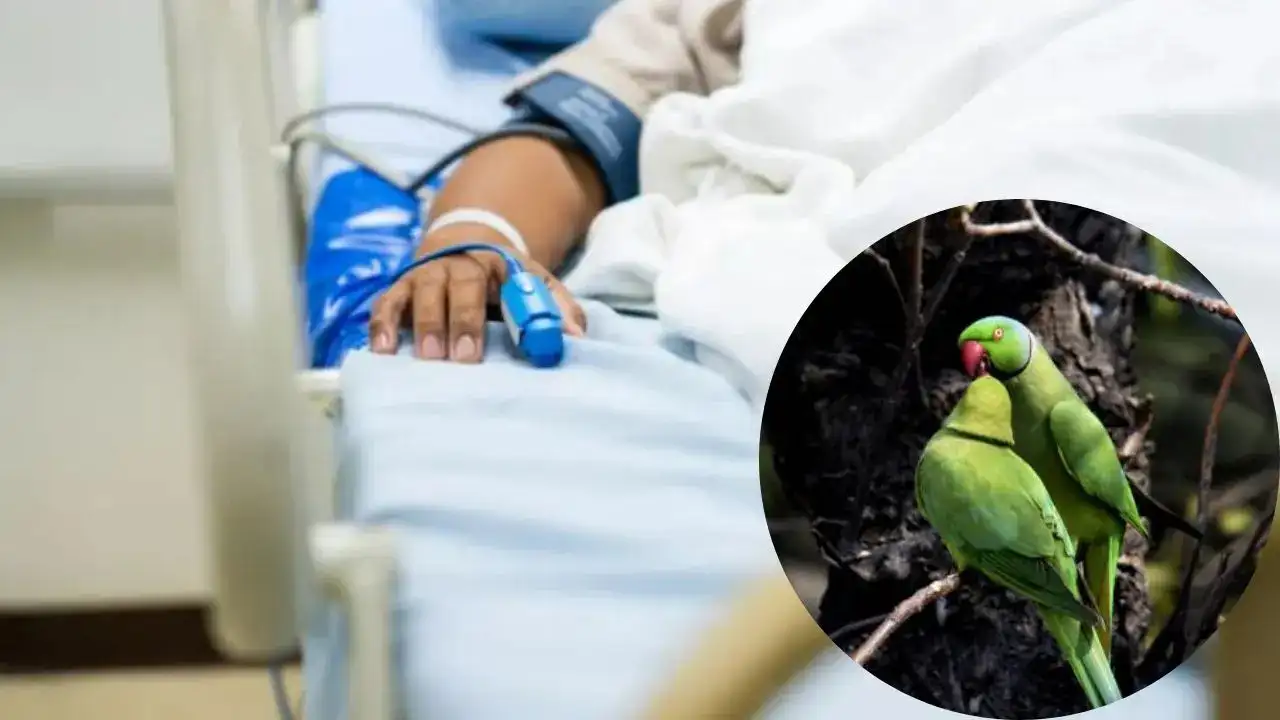
Doctors said the man's lungs had ground-glass opacities, a hazy pattern that usually shows up in people with viral pneumonia
A young man was diagnosed with psittacosis, also known as parrot chlamydia, after accidentally inhaling chicken poop. The 26-year-old, who went to the hospital after suffering from a non-stop cough along with a high fever that lasted more than a week, was thoroughly investigated by the doctor.
Doctors said, initially, they thought the man from Zhejiang Province had a normal respiratory infection, but a chest scan revealed something more serious. His lungs had “ground-glass opacities”, a hazy pattern that usually shows up in people with viral pneumonia or COVID-19 infection.
Despite being treated with antibiotics, his condition deteriorated. Doctors conducted tests on his lung samples, which found he had psittacosis - also known as parrot fevewhich is caused by chlamydia psittaci bacteria. However, the chlamydia that causes psittacosis is not the same as the sexually transmitted disease chlamydia, even though both are caused by the same bacteria.
After his diagnosis, the man’s treatment was adjusted to include appropriate antibiotics, specifically omadacycline and azithromycin. Within two weeks, his cough had "completely resolved," and a CT scan suggested his lungs were improving, the medics wrote in a paper.
What is psittacosis?
Psittacosis is a bacterial infection you can get from birds. It leads to various kinds of flu-like symptoms. Birds get diarrhoea, a runny nose or eyes, and other symptoms. Birds also carry bacteria without showing symptoms.
Doctors say you can get psittacosis from close contact with infected birds and breathing in dust contaminated with their poop or respiratory fluids. Less commonly, a bird can infect you by biting you or touching their beak to your mouth. You’re very unlikely to get psittacosis from an infected person.
Signs and symptoms of psittacosis
A few signs and symptoms of psittacosis include:
- High fever
- Cough and colds
- Muscle pain
-
Headaches and body aches
- Nausea and vomiting
- Diarrhoea
- Rashes
What are the risk factors for psittacosis?
Doctors say you are at a higher risk for psittacosis if you have a job or hobbies that put you in close contact with pet birds or fowl. This includes people who have pet birds or who work:
- On a poultry farm or in poultry processing
- In a veterinary office that treats birds
- In a pet shop that sells birds
